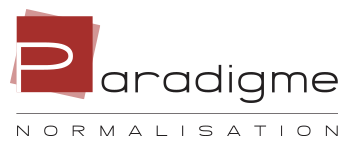Training
Audit engagement – Paradigme file

Length: 7 h 00
Updated training for 2025-2026
Summary
Audit files are an essential cornerstone for CPAs, whether working with not-for-profit organizations (NPOs) or private enterprises (PEs). They meet the requirements of funders, creditors, and investors, while ensuring a high level of reliability of financial information.
This training takes you step by step through the performance of an audit engagement—from planning to issuing the report—emphasizing effective documentation and the optimal use of Paradigme Questionnaires. You will learn how to target areas at risk of material misstatement, apply appropriate corroboration procedures, and document your conclusions in compliance with CAS 200 to 810.
By the end of the day, you will leave with a complete model file, practical examples, and concrete tools to secure your engagements and prepare your teams for professional inspections.
Learning objectives:
- Understand the central role of the audit file in assurance engagements.
- Master the key steps of planning, risk assessment, and audit execution.
- Effectively document procedures and conclusions in accordance with standards.
- Develop practical reflexes to improve engagement quality and efficiency.
- Prepare for professional inspections with clear, complete, and compliant documentation.
Agenda
Planning the audit engagement
- Acceptance of the audit engagement and the independence standards in the Code of Ethics
- Tolerance of risks of material misstatement (RMM)
- Understanding of the audited entity:
- Operations and accounting records, including internal control
- Walk-through tests
- Evaluation of internal controls and the control environment
- Determination of the audit approach (mixed or substantive)
- Determining materiality and the materiality of the work
- Identifying material items and assessing the RMM by assertions
- Planning effective audit procedures to address the RRM
Execution of the audit engagement
- Obtaining sufficient and appropriate audit evidence to support the assessment of RRM for each material item in the financial statements
- Documenting the analytical procedures
- Sample worksheets for determining the number of substantive tests for the main items and documenting the substantive tests:
- Receivables, including cut-offs
- Inventories, including count testing procedures
- Property, plant and equipment and intangible assets
- Long-term financial assets, fair value audit
- Accounts payable, including cut-offs, salaries and commodity taxes
- Long-term debt (financial liabilities), including documentation to support classifications as current or long-term
- Substantive tests on sales and cost of goods sold as well as grant revenue reconciliations
- Tests on salaries
- Other procedures on other income statement items
- Accounting estimates
Last but not least
- Presentation of the changes made to the Paradigme Audit Questionnaires
- You will receive a Paradigme file template to help you master the Paradigme Questionnaires
- Communications and letters
- Comments from the professional inspection
- Discussion with participants
Results for Your Firm
- Stronger mastery of standards and documentation requirements.
- Better structured audit files, more efficient and inspection-ready.
- A team equipped to identify and document risks rigorously.
- Tangible improvements in the quality and added value of audit engagements.
- Increased standardization through Paradigme questionnaires and best practices presented.
Soyez les premiers informés!
Inscrivez-vous à notre infolettre et soyez à l’affût des formations disponibles et des nouveautés.


